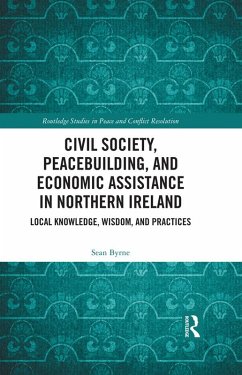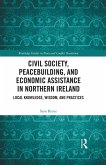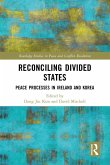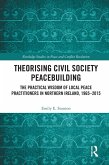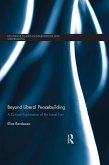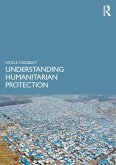The work explores the perspective and experiences of local peacebuilders in Northern Ireland and the border counties of the Republic of Ireland about their analysis and critique of liberal peacebuilding, their hopes, and concerns, and how they are aligned with external funders. It features interviews with a plethora of civil society organization workers, funding agency community development officers, and civil servants adjudicating the International Fund for Ireland and the European Union Peace and Rconciliation Fund, which highlight the participants' local wisdom, practices, and values regarding creating sustainable livelihoods, peacebuilding insights, receiving recognition for their work, dissonance with internal and external actors, conflict transformation efforts, and and engagement with partners and allies. The rich empirical qualitative exploratory case study, situated in post-peace accord Northern Ireland and the border counties of the Republic of Ireland, speaks to the respondents' ideas about the creation, delivery, and efficacy of peacebuilding-funded initiatives as well as their hopes and dreams for the future. In exploring this central argument, the work offers an overarching structure in which to analyze the theory and praxis of conflict and peacebuilding in Northern Ireland. More generally, it offers an important contribution to our understanding of local peacebuilders, and how economic assistance impacts on a divided society.
This book will be of much interest to students of peacebuilding, conflict resolution, sociology, and British and Irish politics.
Dieser Download kann aus rechtlichen Gründen nur mit Rechnungsadresse in A, B, BG, CY, CZ, D, DK, EW, E, FIN, F, GR, HR, H, IRL, I, LT, L, LR, M, NL, PL, P, R, S, SLO, SK ausgeliefert werden.
Professor Harry Anastasiou, International Peace and Conflict Studies, Portland State University, USA
'Sean Byrne demonstrates an intimate and profound understanding of the conflict in Northern Ireland through a complex and fascinating analysis of the nature, effects and disconnects of liberal peacebuilding in relation to local actors and needs. This unique work explains why a sectarian ethnonationalist divide resists integration and reconciliation in spite of significant peacebuilding efforts.'
Ronald J. Fisher, Professor Emeritus of International Peace and Conflict Resolution, School of International Service, American University, Washington, DC, USA

